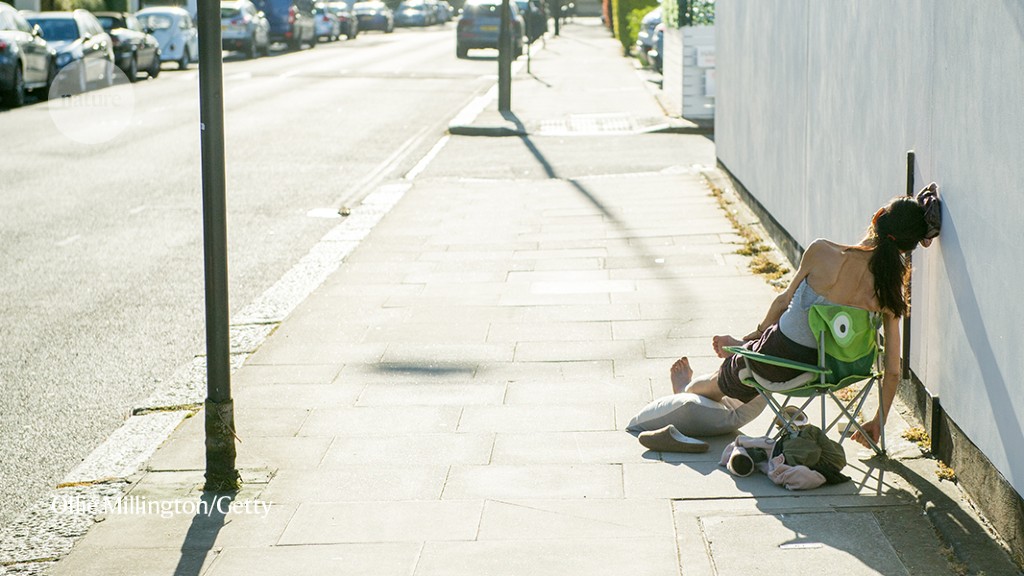A sweeping study of 8 million calls to helplines in 19 countries and regions found that call volumes jumped during the first wave of coronavirus infections. Loneliness and concerns about the pandemic drove most of the callers, rather than imminent threats such as suicidal thoughts or abuse.
The analysis, published on 17 November by Nature1, is one of the largest to address mental-health challenges during the pandemic. The authors report that calls to helplines increased over the first six weeks of the initial wave of coronavirus infections. At the six-week peak, the total number of calls was 35% higher than before the pandemic.
“The increase in calls was mainly driven by additional people ringing because they wanted someone to talk to about this pandemic,” says Marius Brülhart, an economist at the University of Lausanne in Switzerland and a co-author of the paper. “There was no sign of an explosion in calls due to domestic violence or suicide.”
Furthermore, the team found that in France and Germany, suicide-related calls to helplines increased when lockdowns became more stringent, but decreased with the arrival of financial support from the government, such as payments for furloughed workers and struggling businesses.
The project was forged in the early days of the pandemic in 2020, when Brülhart and a colleague were looking for a way to monitor the impact of the pandemic and resulting lockdowns on mental health. Most large-scale mental-health analyses draw on electronic health records and data about mental-health outcomes such as suicides. But such reports tend to be slow. “Usually, the time lag is not a big deal,” says Brülhart. “But in a pandemic, you’d like to know what’s happening today.”
So the team turned to crisis helplines, collecting data from 19 countries and regions including the United States, China, Lebanon and 14 European countries. The data included the reasons for the calls, but not the demographics of the callers. Also, initial data on the volume of calls could have been affected by problems with staffing, Brülhart says, because many helplines reported being overwhelmed both by the volume of calls and as a result of staff shortages.
A lesson for future pandemics
Despite fears that the pandemic would cause a surge in mental-health crises including suicides and addiction, and in intimate-partner abuse, Brülhart and his collaborators did not find signs of this in their data. That does not invalidate the suffering of some individuals, or anecdotal or regional studies that might have found different results, Brülhart says — it just means that the trend did not emerge from the large-scale helpline data his team collected.
The results of the study are correlative rather than causative, meaning that the researchers cannot tell if the financial assistance was the cause of the drop in suicide-related calls in France and Germany. But it is a signal worth following up on, says Munmun De Choudhury, a computer scientist at Georgia Institute of Technology in Atlanta who works on digital mental health.
Mental health “is an ecological experience,” she says. “There are things that happen in our environment and communities that impact us, and financial aspects are a very important part of it.”
Overall, the approach provides an exciting way to track mental health changes as they occur, says Cindy Liu, a clinical psychologist at Brigham and Women’s Hospital in Boston, Massachusetts, and the author of a commentary published with the paper. “We don’t really have a great way of monitoring mental health,” she says. “And I think sometimes mental health gets the shaft as a result. People don’t know if the policies are really making a difference.”
If you or someone you know is experiencing a mental-health crisis, please reach out. You can find assistance through a helpline: https://findahelpline.com/








More News
How artificial intelligence is helping Ghana plan for a renewable energy future
Editorial Expression of Concern: Leptin stimulates fatty-acid oxidation by activating AMP-activated protein kinase – Nature
Quantum control of a cat qubit with bit-flip times exceeding ten seconds – Nature